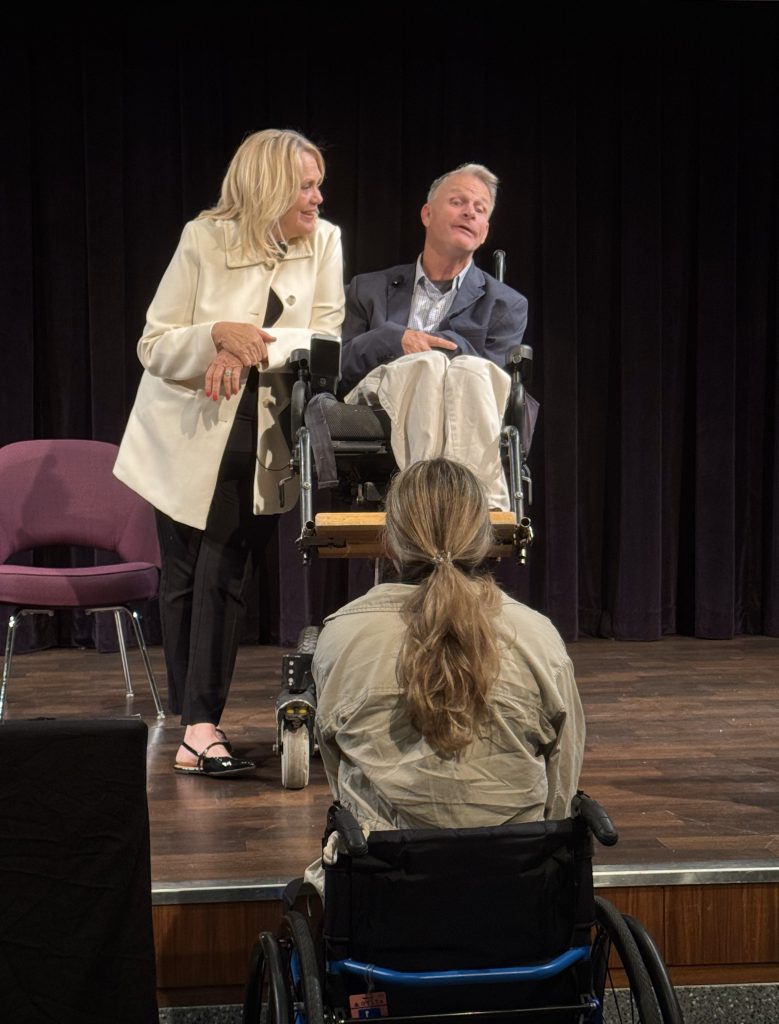
On April 3, the National Museum of American History at the Smithsonian hosted a moving and unforgettable evening with Steve and Elizabeth Wampler, whose story of grit, innovation, and human possibility captivated a full-house audience. The special event focused on the intersection of adaptive technology, resilience, and the courage to challenge limitations.
The evening opened with a free reception and continued with a powerful keynote conversation led by the Wamplers. The highlight of the night was Steve Wampler’s retelling of his historic ascent of El Capitan — the iconic 3,000-foot granite wall in Yosemite National Park — a feat that required over 20,000 pull-ups and took six days to complete. Steve, who lives with a severe form of cerebral palsy and has use of only one limb, became the first person with his level of disability to climb El Capitan unassisted, using an adaptive climbing system designed specifically for the challenge.
Steve was joined on stage by his wife Elizabeth, his closest partner in life and in mission. Together, they shared the triumphs and trials of their journey — not just the climb, but the bigger purpose behind it: breaking down social barriers and opening the world to children with physical disabilities. Elizabeth’s voice added insight, humor, and emotional depth as they discussed their shared calling and the movement they’ve sparked together.
“We want to show the world that there is a lot of beauty in disability, and want to take the sadness out of the topic.”
The Wamplers also run Camp Wamp, a wilderness adventure camp for children with physical disabilities located near Lake Tahoe, California. Camp Wamp provides life-changing outdoor experiences that build confidence, community, and independence. The Foundation is currently seeking campers ages 8–18 for this upcoming summer session, and children from all over the country are welcome to apply.
Their message struck a deep chord, blending humor, raw honesty, and practical insight to break down long-standing assumptions about disability, determination, and inclusion.
Attendees included leaders in innovation, education, disability advocacy, and members of the general public who left inspired and energized. Many lingered after the talk to thank the Wamplers personally and reflect on how their story could spark change in their own lives.
The event, hosted by the Smithsonian as part of its ongoing series highlighting resilience and innovation in America, marked a powerful moment of inclusion and possibility—and a reminder that some of the greatest climbs in life happen within.




